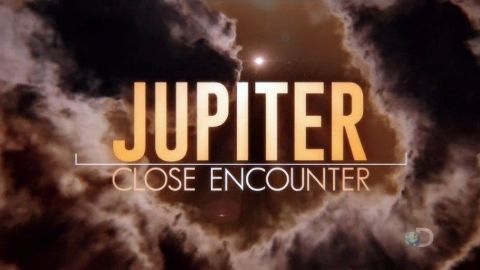You might also like
Dead stars may be the key to understanding the cosmos. New research proves white dwarfs are one of the driving forces of our universe. They eat planets, they flare out in high-energy light Have scientists finally discovered how these small stars could be such massive galactic players?
S9E5 • How the Universe Works • 2021 • Astronomy
Professor Brian Cox fulfils a childhood dream by going behind the scenes at Nasa's Jet Propulsion Laboratory (JPL), mission control for Mars 2020 – one of the most ambitious missions ever launched that may finally reveal if life ever existed on the red planet. In 1980, a young Brian Cox wrote to JPL asking for photos from some of their missions to the planets. The pictures they sent him from Voyager and the Viking mission to Mars were a source of inspiration that set him on the path to becoming a physicist. Now, over 40 years later, he has been granted privileged access to JPL, including key mission areas that are usually off-limits to film crews. Brian spends a week following the team who guide the Perseverance rover and the Ingenuity helicopter - the first powered aircraft ever sent to another planet - across the surface of Mars during a critical stage of the mission. Perseverance's goal is to search for signs of long extinct life on the surface of Mars in an area called Jezero Crater, which, 3.8 billion years ago, was filled by a vast lake. If it finds evidence of that life, it could change everything we know about life in the universe - and even transform our understanding of our own origins.
2022 • Astronomy
A soaring quest through the solar system’s exotic and hidden water realms, from the deep seas below the icy crust of Europa to the vast prehistoric oceans that once existed on Mars billions of years ago.
S1E4 • Space's Deepest Secrets • 2016 • Astronomy
Can Jupiter unlock the secrets of Earth’s formation? How did a team engineer a spacecraft to endure a toxic mix of radiation and gaseous turbulence? After a five-year journey, the moment of truth is finally here. Jupiter: Close Encounter delivers a comprehensive, hour-long look at the unprecedented, amazing, and utterly extreme journey of NASA’s heavily armoured Juno Spacecraft on an odyssey to the largest planet in the solar system. Anchored by DAILY PLANET Co-Host Dr. Dan Riskin from the NASA Jet Propulsion Laboratory (JPL) in Pasadena, California, Jupiter: Close Encounter follows NASA’s Juno Spacecraft mission as it attempts to enter a “polar orbit” around the king of the the solar system for the first time ever on July 4. The landmark mission will study the planet’s spectacular auroras, seek the inner-most core, and wade into Jupiter’s Great Red Spot. The gripping one-hour special introduces viewers to the dedicated and incredible team behind the high stakes-mission – scientists determined to provide new answers to the mystery of the solar system, Earth, and life itself.
2016 • Astronomy
There are Black Holes, and then there are Monster Black Holes -- containing several million to ten billion times the mass of our Sun! They've been discovered in the center of many galaxies. But they don't just absorb everything around them...in fact, they may be key to forming new galaxies.
10 • Cosmic Front • 2014 • Astronomy
Volcanoes have long helped shape the Earth. But what is less well known is that there are volcanoes on other planets and moons that are even more extraordinary than those on our own home planet. Horizon follows an international team of volcanologists in Iceland as they draw fascinating parallels between the volcanoes on Earth and those elsewhere in the solar system. Through the team's research, we discover that the largest volcano in the solar system - Olympus Mons on Mars - has been formed in a similar way to those of Iceland, how a small moon of Jupiter - Io - has the most violent eruptions anywhere, and that a moon of Saturn called Enceladus erupts icy geysers from a hidden ocean. Computer graphics combined with original NASA material reveal the spectacular sights of these amazing volcanoes. Along the way, we learn that volcanoes are not just a destructive force, but have been essential to the formation of atmospheres and even life. And through these volcanoes of the solar system, scientists have discovered far more about our own planet, Earth - what it was like when Earth first formed, and even what will happen to our planet in the future.





